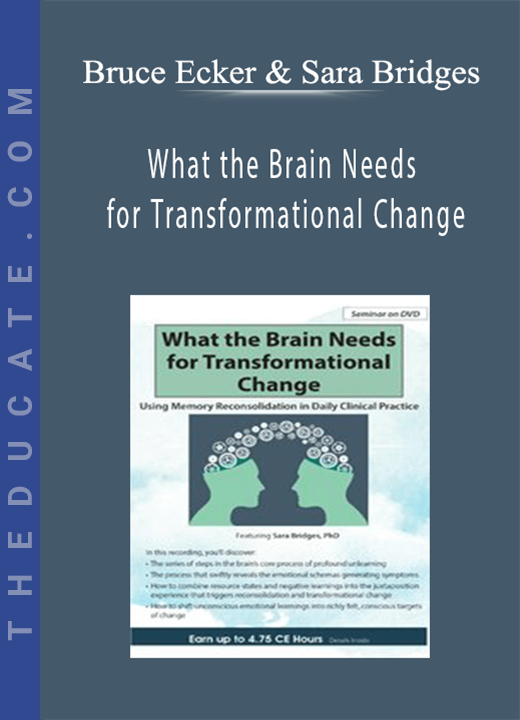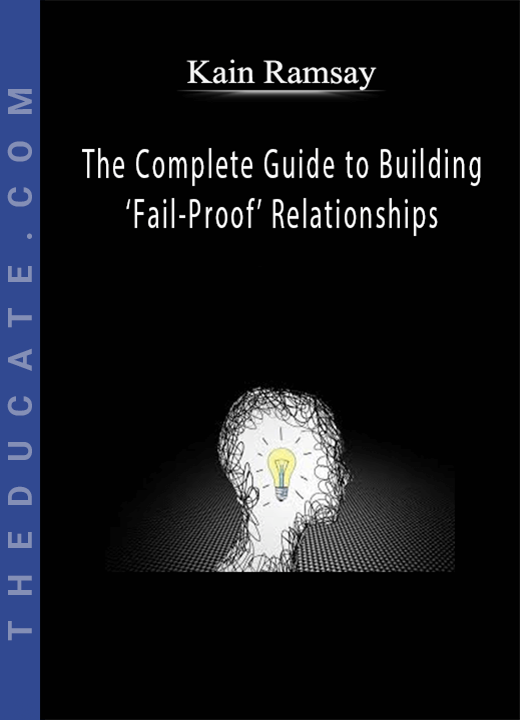Description
What the Brain Needs for Transformational Change: Using Memory Reconsolidation in Daily Clinical Practice – Bruce Ecker & Sara Bridges
Neuroscientific advances in memory reconsolidation enable us to achieve therapeutic breakthroughs with previously unheard of consistency. In this workshop, you’ll learn how to engage the neural process that decommissions implicit learnings that drive PTSD, compulsive behaviors, and insecure attachment. You’ll see how reconsolidation underlies the effectiveness of a wide range of therapies and is key to transformational change. Videos and live demonstration will show you how to mobilize the brain’s power to unlock and dissolve long-entrenched schemas, ego states, and emotional conditionings. You’ll discover:
- The series of steps in the brain’s core process of profound unlearning
- The process that swiftly reveals the emotional schemas generating symptoms
- How to combine resource states and negative learnings into the juxtaposition experience that triggers reconsolidation and transformational change
- How to shift unconscious emotional learnings into richly felt, conscious targets of change
**This recording is intended only for mental health professionals and trainees.
- Discover the series of steps in the brain’s core process of profound unlearning
- Discover the process that swiftly reveals the emotional schemas generating symptoms
- Discover how to combine resource states and negative learnings into the juxtaposition experience that triggers reconsolidation and transformational change
- Discover how to shift unconscious emotional learnings into richly felt, conscious targets of change
- Different types of change and memory reconsolidation:
Counteractive
Transformational
- Transformational change therapies
Common therapeutic factors across diverse approaches
Permanence of transformational change
- Memory deconsolidation and reconsolidation
History and research
- Emotional learnings
Nonverbal, implicit structure
Schemas and their self-protective function
- Impact of competing new learning
Brain circuits involved
Challenges of incremental learning and change
- Schema and implicit memory erasure
Non-reactivation
Symptom cessation
Effortless permanence
- Change mechanisms and sequences across therapeutic approaches
- Process for schema erasure
Reactivation
Guided contradictory experience
Juxtaposition with target schema
- Preparation for intervention
Symptom identification
Retrieving underlying schema
Finding contradictory experiences
- Nonspecific common therapeutic factors
- Verifying therapeutic outcome
Dissolution of schema
Evaluating presence of multiple schemas
- Clinical case examples of transformational process
Therapist factors
Potential complications
- Discovery techniques
Symptom deprivation
Overt statements
Sentence completion
- Summary and resources







11 reviews for What the Brain Needs for Transformational Change: Using Memory Reconsolidation in Daily Clinical Practice – Bruce Ecker & Sara Bridges
There are no reviews yet.